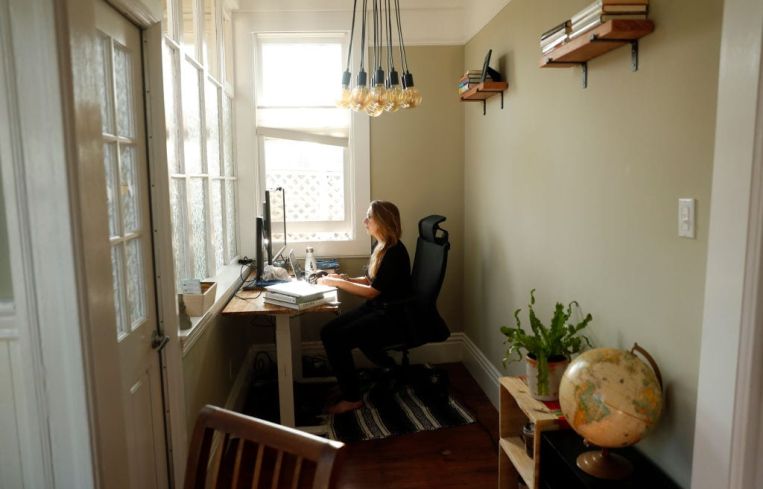CoreNet Survey: Work-From-Home Hurts Employee Development, Not Going Away Soon
Employee development will suffer as a result of the prolonged work-from-home switch caused by the coronavirus pandemic, but most companies agree that remote work is here to stay.
By Nicholas Rizzi November 10, 2020 9:00 am
reprints
Employee development will suffer as a result of the prolonged work-from-home switch caused by the coronavirus pandemic, but most companies agree that remote work is here to stay, according to a CoreNet Global survey.
A survey of nearly 300 CoreNet members — employees whose workplaces ranged from real estate firms to corporate tenants — found that 73 percent think the extended work-from-home culture will ultimately hurt employee development. The majority of employees in the survey, 56 percent, also reported fear of an “unconscious bias” from their bosses if they chose not to return to the office.
“There are a lot of companies thinking about employee engagement,” Colliers International’s Sheena Gohil, chair of CoreNet’s New York chapter, said. “How do you make it inclusive once there is an in-office component?”
Despite the challenges, 62 percent of the participants reported they could create an “engaging company culture,” even as employees spend the day working from their dining room tables. However, Gohil said CoreNet members reported that it’s much harder to do so compared with when in the office.
CoreNet’s survey isn’t the first to show that the long-term, work-from-home experiment might have some downsides. While companies raved early on about the success of remote work, a report from Vocon in September found employers have started to see a dip in productivity as work-from-home fatigue started to set in.
CoreNet’s survey had similar findings, with 20 percent reporting they’re overworking remotely, and 39 percent saying they were feeling fatigued during this time, but that was mainly due to COVID-19. Only eight percent reported being happier working from home.
Regardless of some of the downsides, the majority of participants in CoreNet’s survey reported that remote work isn’t going the way of the dodo whenever the coronavirus pandemic wanes.
“There’s going to be some level of a hybrid office and remote work,” Gohil said. “There is a place for remote work — there already was a place — and some of these companies are thinking about how to amplify it and make it better.”
The survey found that 51 percent would continue remote work, but only if they had an in-person “hub” to visit regularly. Another 33 percent said they would continue as long as it didn’t impact their salary, and the majority of participants said the flexibility was remote work’s biggest benefit.
And it’s not just employees expecting work-from-home to continue. All participants said their companies will have a significant remote work policy post-COVID-19, with 78 percent reporting that the programs have already been put in place.
One thing that became clear is that there’s no one-size-fits all solution to a remote work policy, and companies are in the process of deciding what works best for them, said Katie Koncar, a senior associate of workplace strategy and corporate real estate at EY, and one of the organizers of the CoreNet event.
“We’re not going to work-from-home forever,” Koncar said. “Everybody is just trying to figure out the right balance.”

![Spanish-language social distancing safety sticker on a concrete footpath stating 'Espere aquí' [Wait here]](https://commercialobserver.com/wp-content/uploads/sites/3/2026/02/footprints-RF-GettyImages-1291244648-WEB.jpg?quality=80&w=355&h=285&crop=1)


